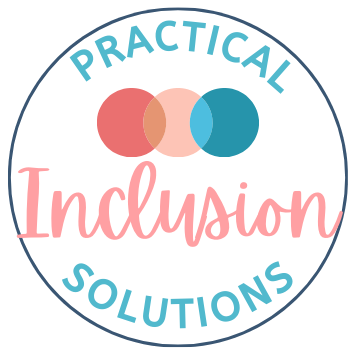Want to know one of the secrets to a thriving inclusive classroom? It all starts with building strong relationships with students, parents, and colleagues. In this blog post, we’ll explore how connecting with students, parents, and colleagues can transform your learning environment into a welcoming and supportive space. Building positive relationships fosters trust, collaboration, and a sense of value for everyone involved. Here, we will explore the three key areas where relationships play a crucial role in inclusive education.
Building Relationships with Students
How many of us have thought to ourselves, “I wish that student would just put in a little more effort” or “Why is this student being so disrespectful today?” Raise your hand—we’ve all been there.
Building positive relationships with students starts with a strong foundation. When students feel valued, they are more willing to engage in learning, take academic risks, and develop positive behaviors. Students thrive when they trust the adults around them. Taking a genuine interest in their passions and experiences goes a long way. Whether they are excited about a new video game, a book they just finished, or last night’s basketball game, showing that you care about their world helps build mutual respect and connection.
Respect is another key component of relationship-building. When educators model respect—by listening, using positive language, and explaining expectations—students are more likely to reciprocate. Respect doesn’t mean allowing students to do whatever they want; it means setting clear boundaries while treating them with dignity and fairness.
Building Relationships with Parents
Do you ever feel nervous before calling a parent about their child’s day? Do you wonder how a parent might react during a conference? Strong, positive relationships with parents can ease these concerns for both teachers and families.
In an inclusive classroom, parents want to know that their child is valued, supported, and making progress. Parents of students with diverse learning needs may have additional concerns, such as whether their child feels included, is receiving appropriate support, or is making friends. Open, ongoing communication can help address these worries and build trust.
One effective strategy is to start the school year with a letter or survey introducing yourself and inviting parents to share insights about their child. This sets the tone for a partnership. Throughout the year, regular updates—through emails, communication logs, newsletters, or photos—help keep parents informed and engaged. The key is to ensure that communication is not just about challenges but also highlights successes and positive moments. Whether it’s a quick positive phone call or a weekly class update, maintaining open lines of communication strengthens the teacher-parent relationship and benefits students.
Building Relationships with Colleagues and Team Members
Who is more essential to your daily success than the people you work with? Your colleagues—whether they are general education teachers, co-teachers, paraprofessionals, administrators, therapists, or support staff—play a crucial role in fostering an inclusive learning environment. We’ve already covered some of the information about collaborating with colleagues in this blog post.
Strong relationships with colleagues begin with mutual respect. A supportive team environment leads to better collaboration and, ultimately, better outcomes for students. Simple actions like acknowledging a colleague’s hard work, asking about their day, or expressing appreciation can go a long way.
Taking the time to build these relationships fosters a culture of teamwork. When educators support one another, it creates a more inclusive and positive atmosphere for both staff and students.
In the next post, we will dive deeper into some of these areas. Soon, you will have actionable strategies for fostering strong relationships in an inclusive classroom. Stay tuned!
If you’d like to learn more about building relationships in inclusive education, check out these resources:
Do you have tips and experiences to share about building relationships with students, parents, and colleagues? Let us know in the comments or connect with us on Instagram @practicalinclusionsolutions!

